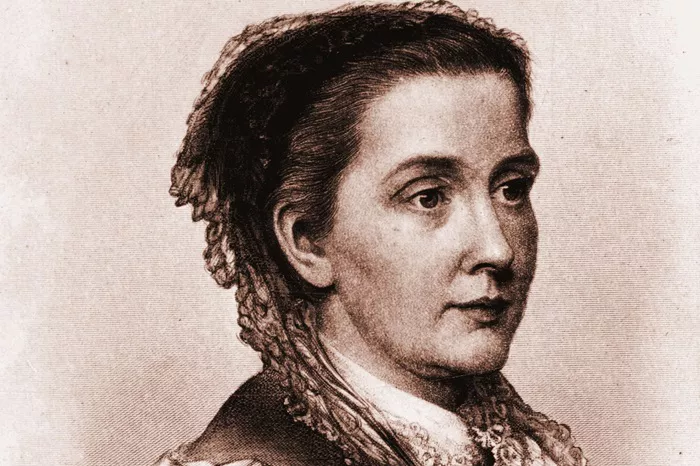Welcome to Poem of the Day – An Apology by Julia Ward Howe.
Julia Ward Howe is best known for writing the “Battle Hymn of the Republic,” but her poem “An Apology” offers a different, more personal tone. This article explores the meaning and significance of Howe’s “An Apology,” examining the themes, literary devices, and the context in which it was written.
An Apology Explanation
Background of Julia Ward Howe
Julia Ward Howe (1819–1910) was an American writer, abolitionist, and social activist. Born into a wealthy family, she married Dr. Samuel Gridley Howe, a well-known physician and advocate for the blind. While Howe’s most famous work is the Battle Hymn of the Republic, she also wrote poetry and essays focusing on topics such as women’s rights, abolition, and social justice. Her writings often reflect her deep concern for moral integrity and her belief in the power of social change.
Context of the Poem
“An Apology” was written at a time when Howe was reflecting on personal responsibility and the impact of one’s actions. The poem presents a speaker offering an apology, acknowledging mistakes, and seeking forgiveness. It addresses themes of remorse, self-awareness, and the human desire for reconciliation. In the poem, the speaker seems to grapple with a sense of guilt, perhaps over their role in a particular situation or their broader influence on others. This theme of apology aligns with Howe’s broader views on responsibility and her belief in moral accountability.
The Structure of the Poem
The structure of “An Apology” is straightforward and follows a traditional poetic form. It consists of several stanzas, each building upon the previous one. The use of simple language and clear sentence construction allows the message of the poem to resonate with a wide audience. Howe uses rhyme and meter to create a sense of rhythm, which helps to reinforce the sincerity of the speaker’s apology. This accessibility makes the poem powerful, as it directly communicates feelings of remorse and a desire for forgiveness.
Themes in “An Apology”
Remorse and Regret: The central theme of “An Apology” is the feeling of remorse. The speaker acknowledges their wrongdoings and expresses regret for causing harm. Howe uses this theme to remind readers that it is natural to make mistakes, but it is equally important to recognize and address them. In the context of Howe’s own life, this could reflect her own struggles with the social and political issues of her time, where the demand for action and change was at odds with the prevailing norms.
Accountability: The speaker of the poem takes full responsibility for their actions. The apology is not merely a formality but an acknowledgment of the consequences of those actions. This sense of accountability is an important moral lesson. By taking responsibility, the speaker demonstrates maturity and the ability to reflect on one’s behavior.
Reconciliation and Forgiveness: At its core, “An Apology” is a call for reconciliation. The speaker hopes for forgiveness, but also demonstrates that the act of apologizing is itself an important step toward healing. Howe emphasizes the idea that apologies are not just about seeking absolution but also about understanding the impact of one’s actions and working to make things right.
Human Imperfection: The poem reflects the universal nature of human imperfection. It acknowledges that everyone makes mistakes, and that it is through recognizing and confronting these mistakes that growth occurs. Howe’s exploration of this theme offers a compassionate view of humanity, showing that the path to personal and moral growth is often paved with self-awareness and humility.
Literary Devices in “An Apology”
Julia Ward Howe employs several literary devices in “An Apology” to enhance the emotional depth and clarity of her message.
Imagery: Although the poem is not filled with rich, detailed imagery, the speaker’s emotional state is conveyed through simple yet vivid language. The feeling of remorse is clear, and readers can visualize the speaker standing before someone, offering an apology. The simplicity of the language allows readers to connect with the emotions behind the words.
Repetition: Throughout the poem, Howe uses repetition to emphasize the sincerity of the apology. Repeating key phrases or sentiments reinforces the speaker’s emotional state and underscores their genuine desire for forgiveness.
Tone: The tone of the poem is earnest and reflective. The speaker is not defensive or dismissive but rather humble and contrite. This tone helps to communicate the gravity of the apology, making the reader feel the weight of the speaker’s remorse.
Rhyme and Meter: While the rhyme scheme is simple, it adds a musical quality to the poem. The regularity of the meter gives the poem a sense of order and balance, reflecting the speaker’s desire for resolution and peace.
Why This Poem Matters
“An Apology” speaks to universal human experiences: regret, responsibility, and the need for reconciliation. It serves as a reminder that acknowledging one’s mistakes is a step toward personal growth and healing. Julia Ward Howe’s exploration of these themes makes the poem relevant even today, as people continue to grapple with the complexity of their actions and relationships.
The poem also highlights Howe’s skill as a writer who can balance personal reflection with broader moral and social messages. Her ability to convey deep emotions in a clear and straightforward manner has made her work enduring and impactful.
Conclusion
Julia Ward Howe’s “An Apology” is a poignant reflection on the themes of remorse, accountability, and the search for forgiveness. Through simple language, careful structure, and emotional depth, Howe conveys a message that is both personal and universal. The poem’s timeless relevance lies in its ability to speak to the human condition and its reminder that understanding our mistakes and seeking reconciliation is a path toward growth and healing.

